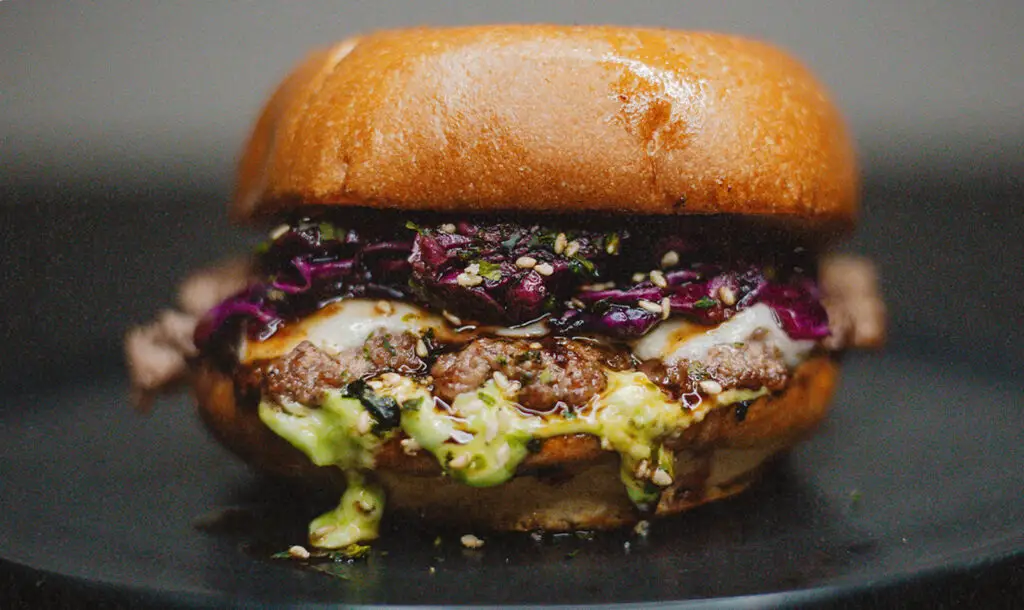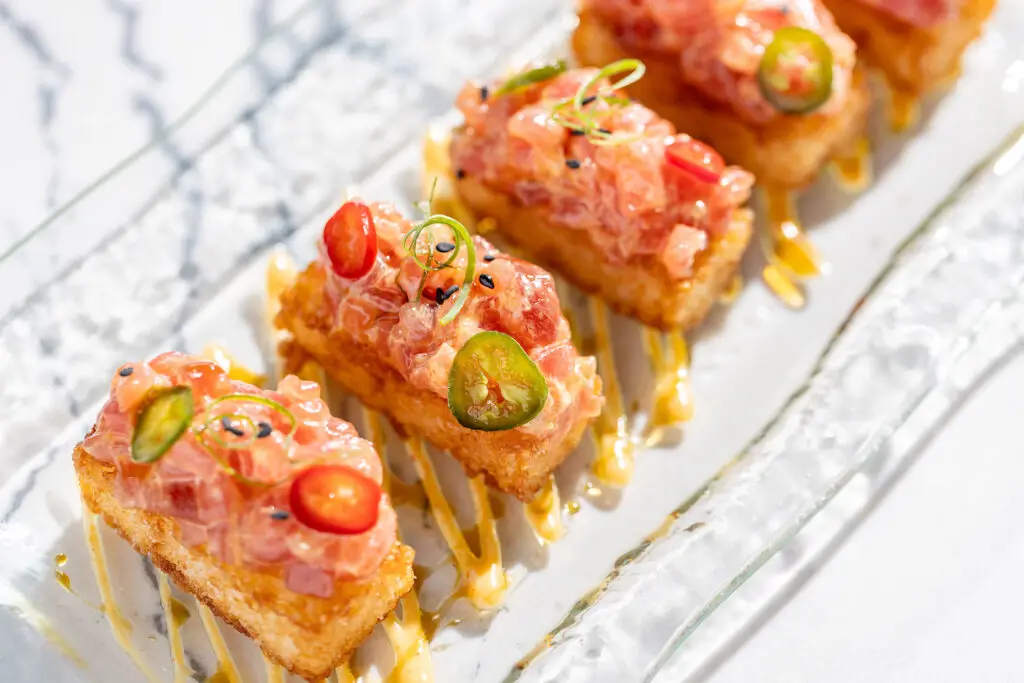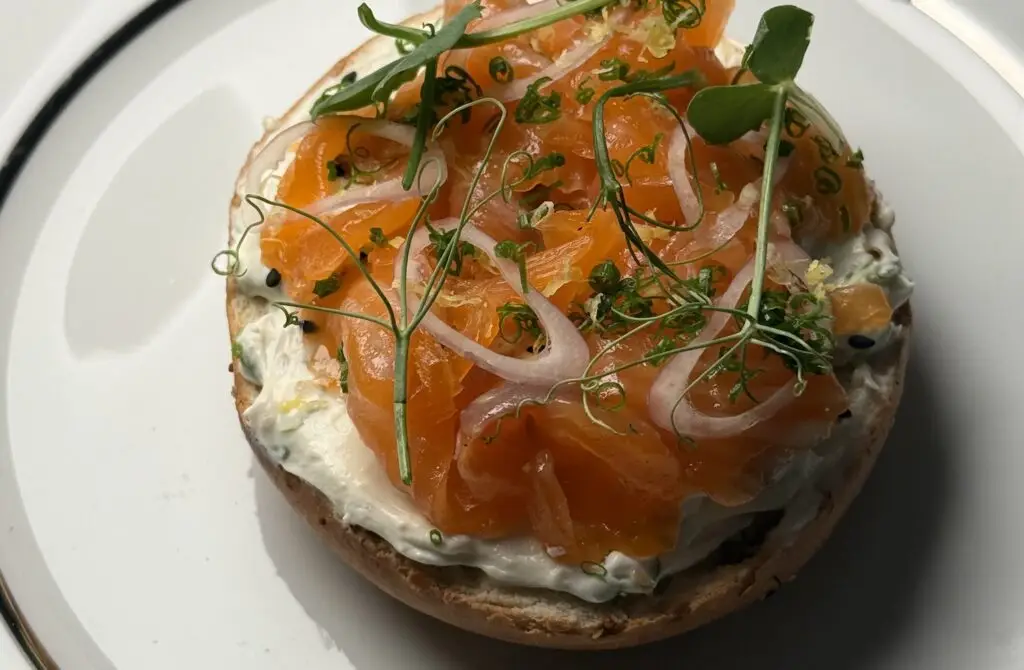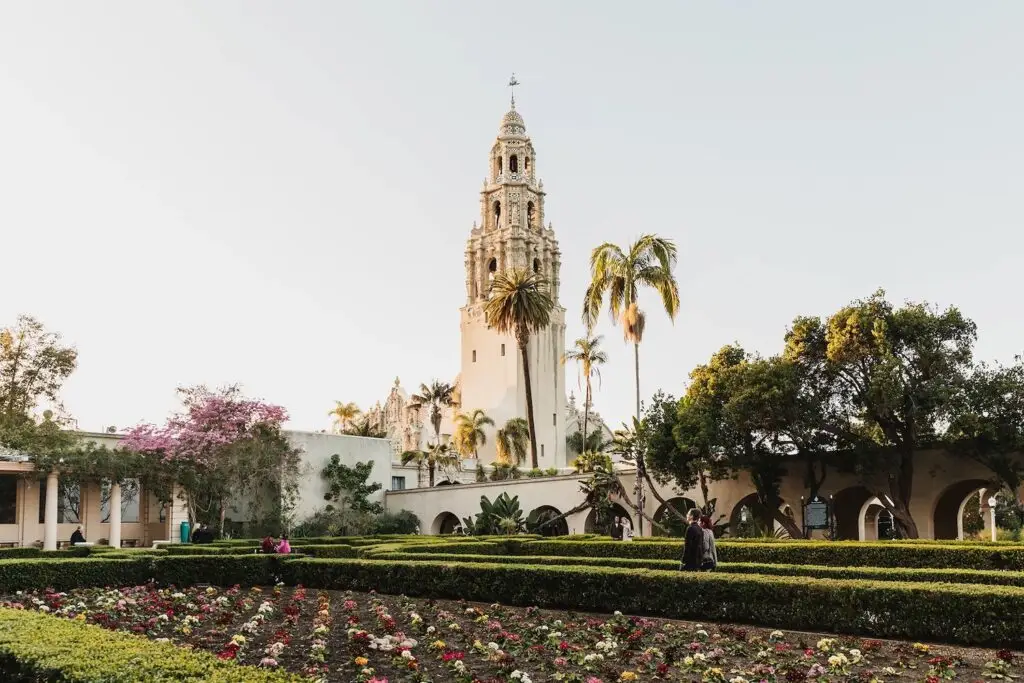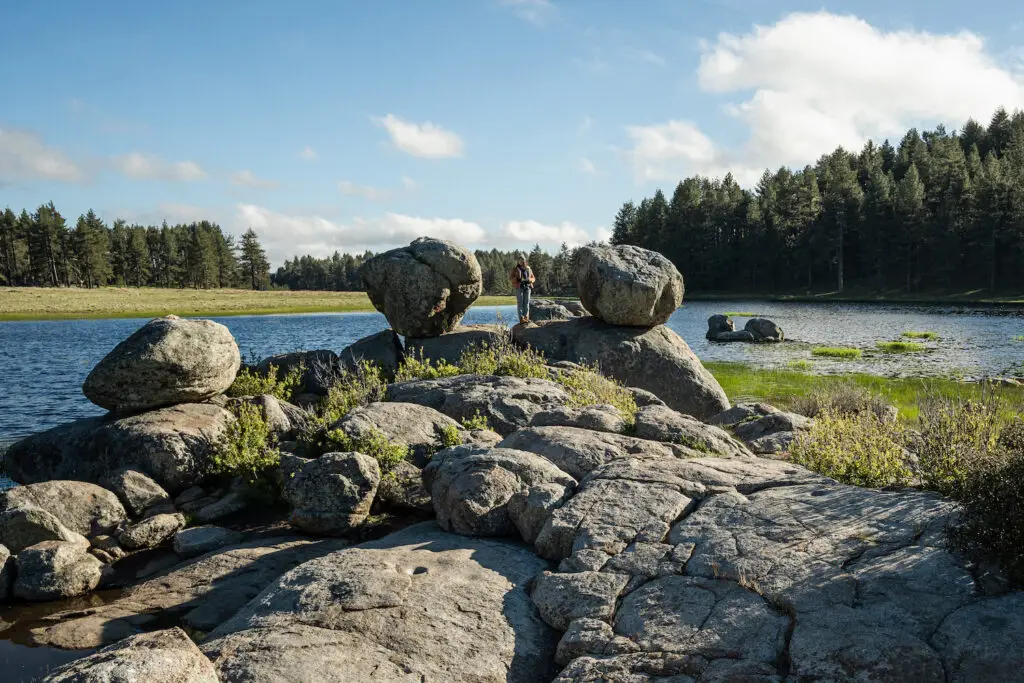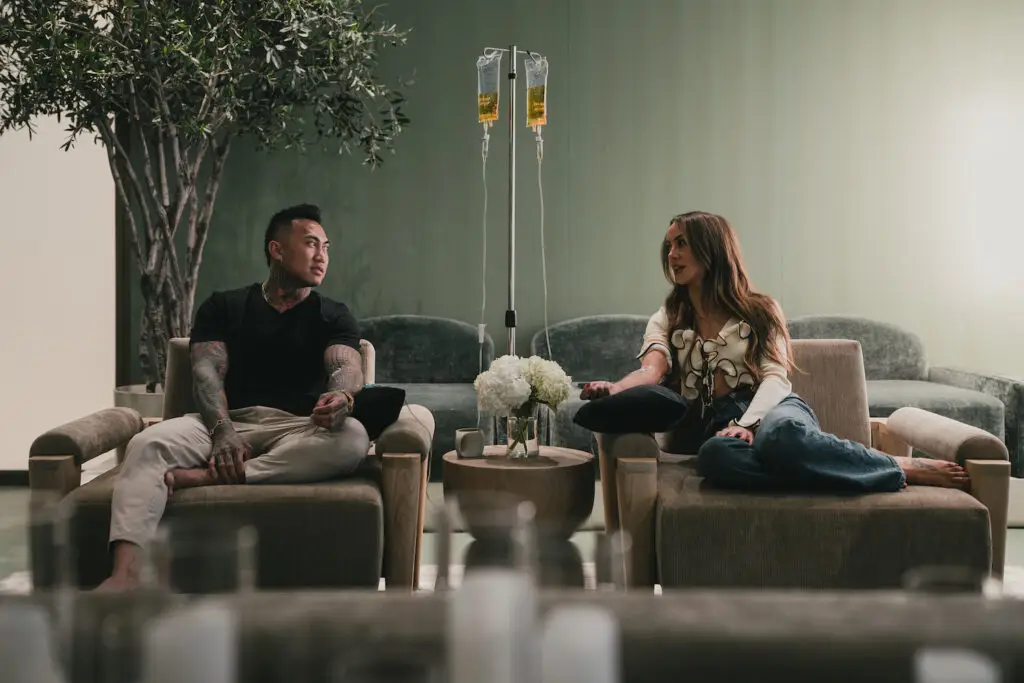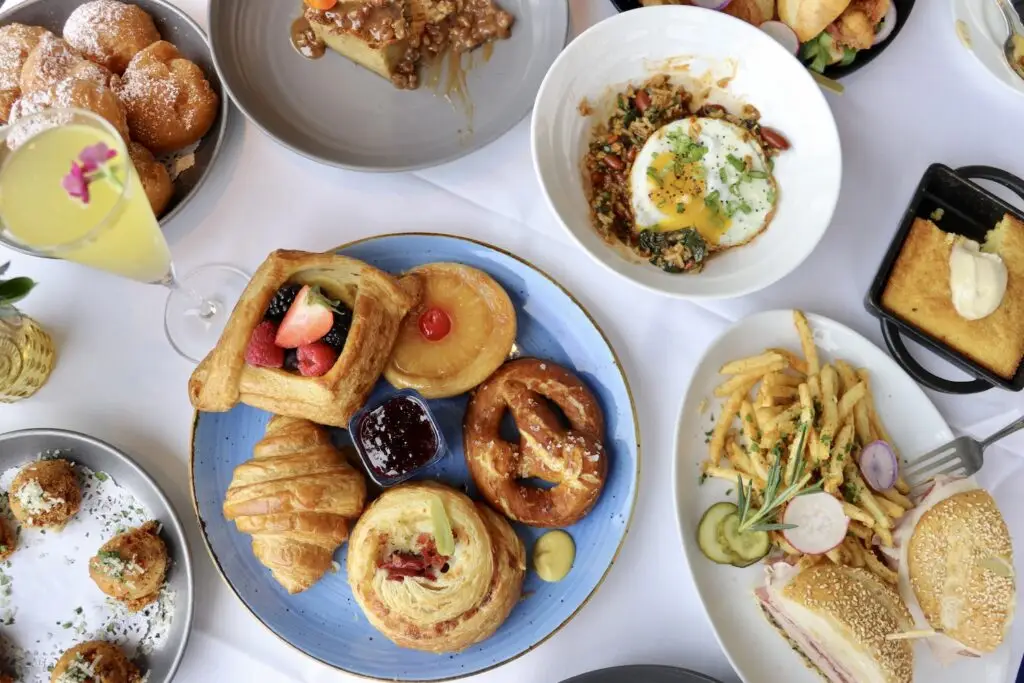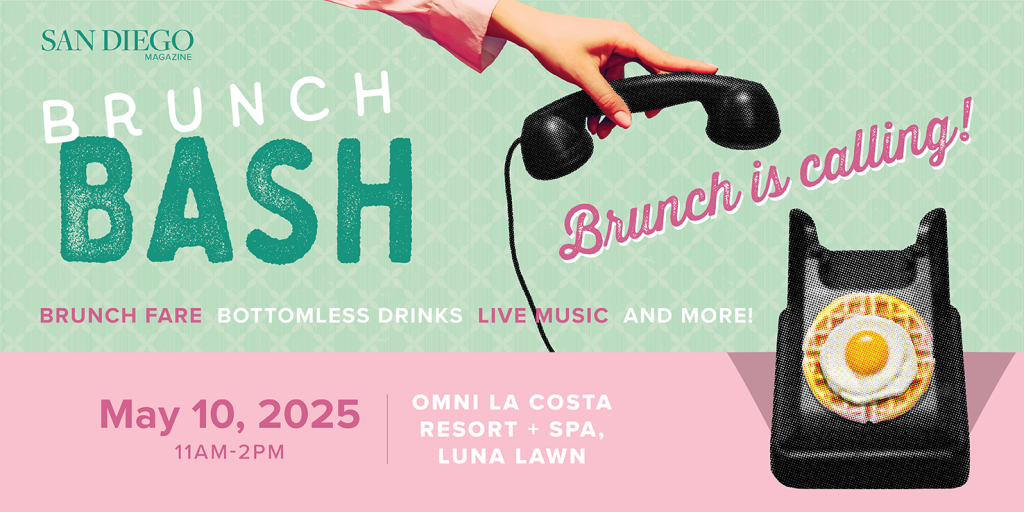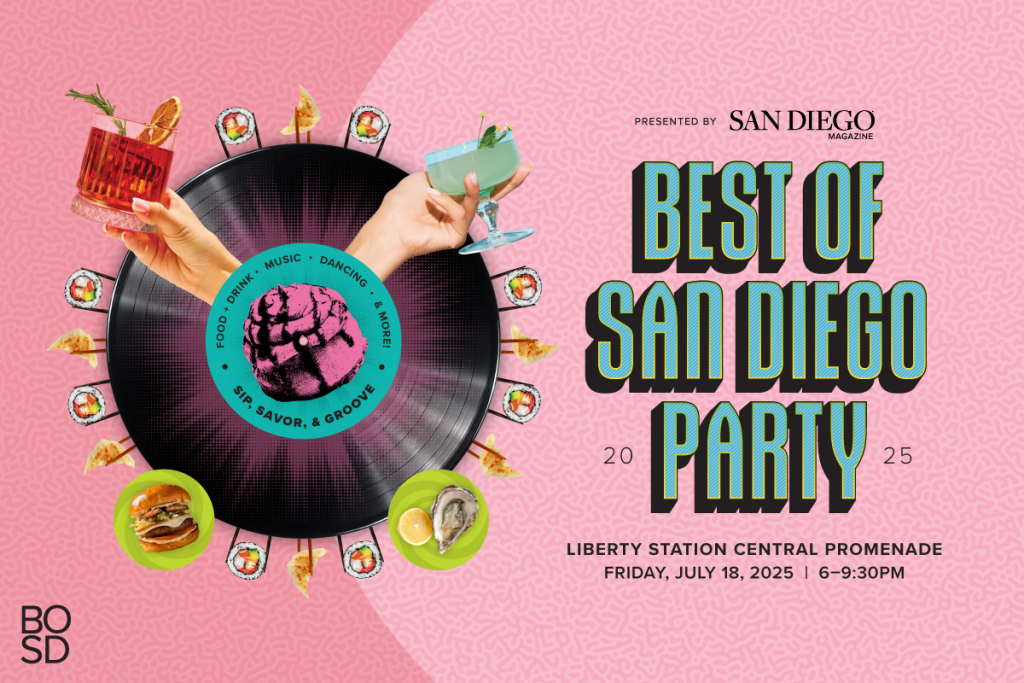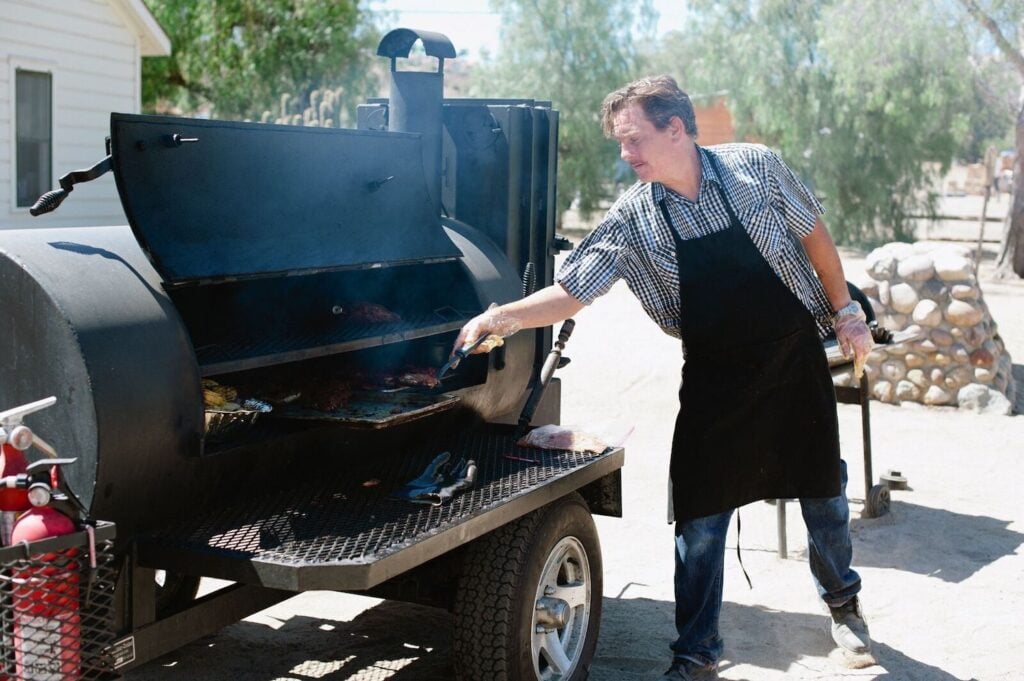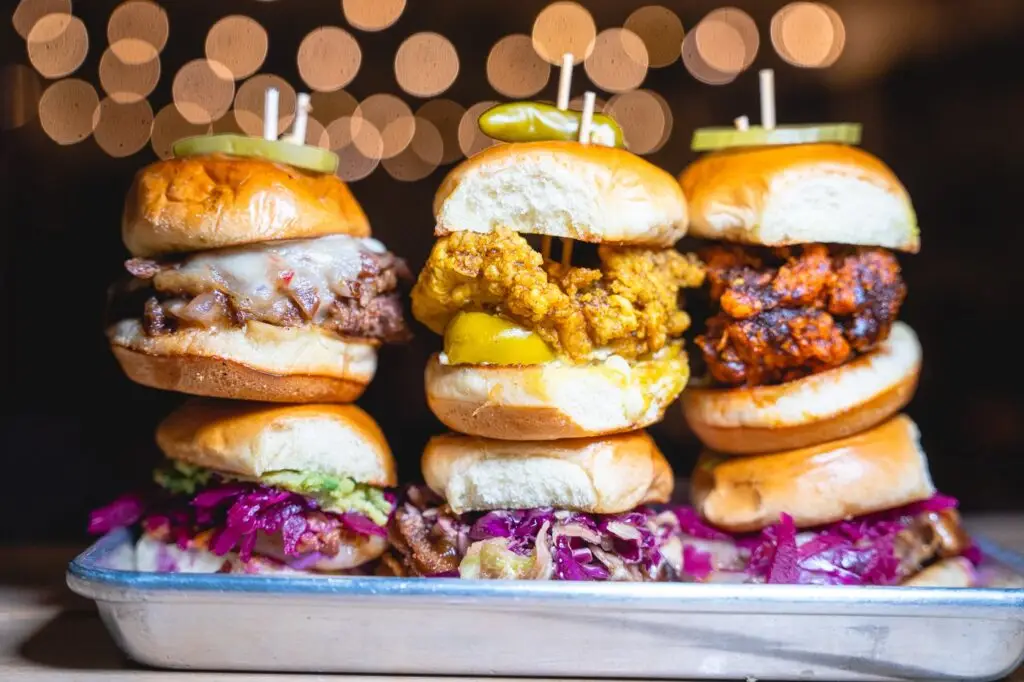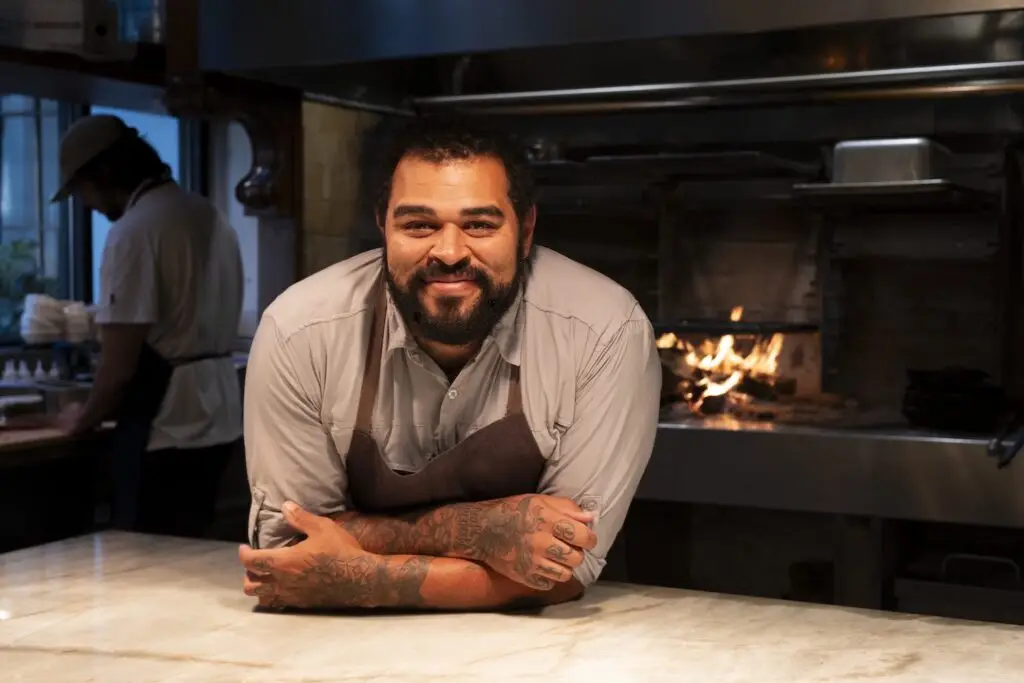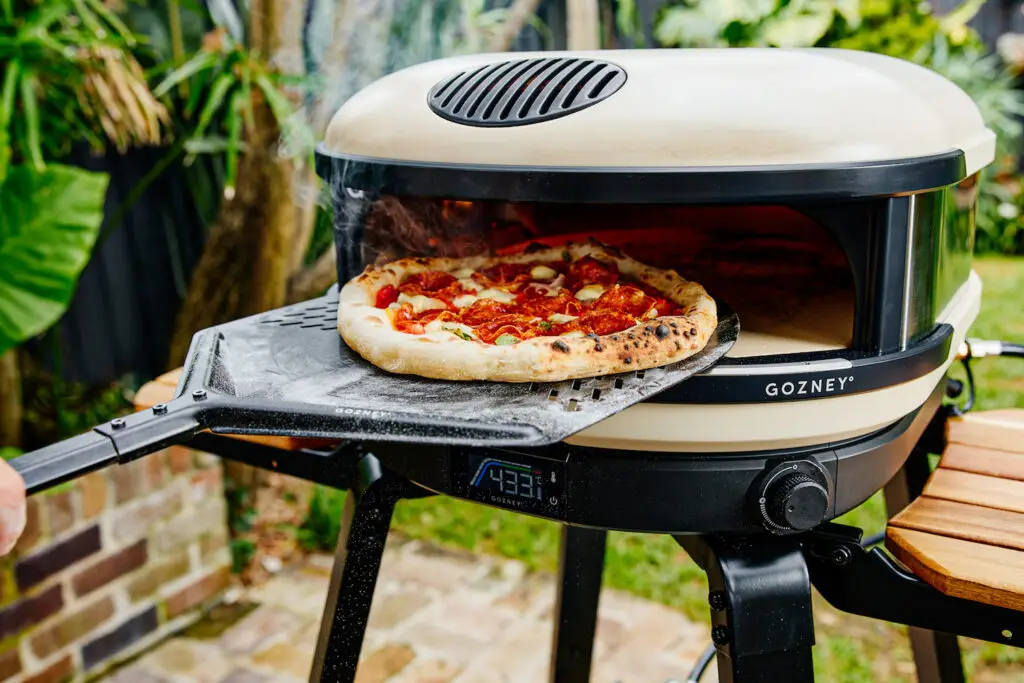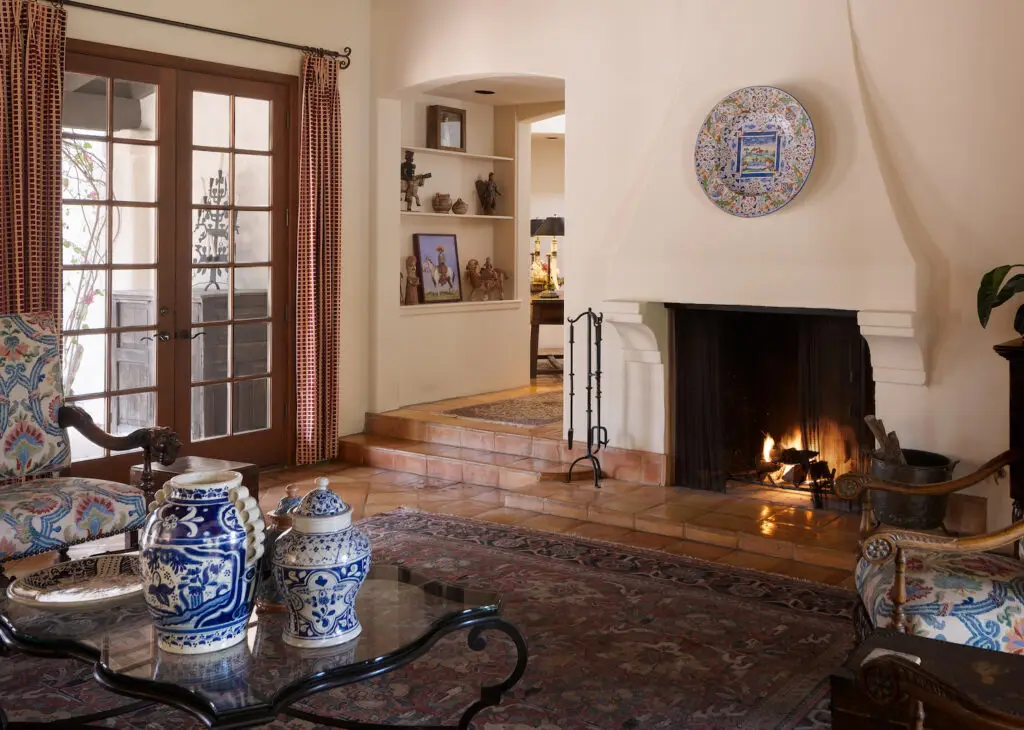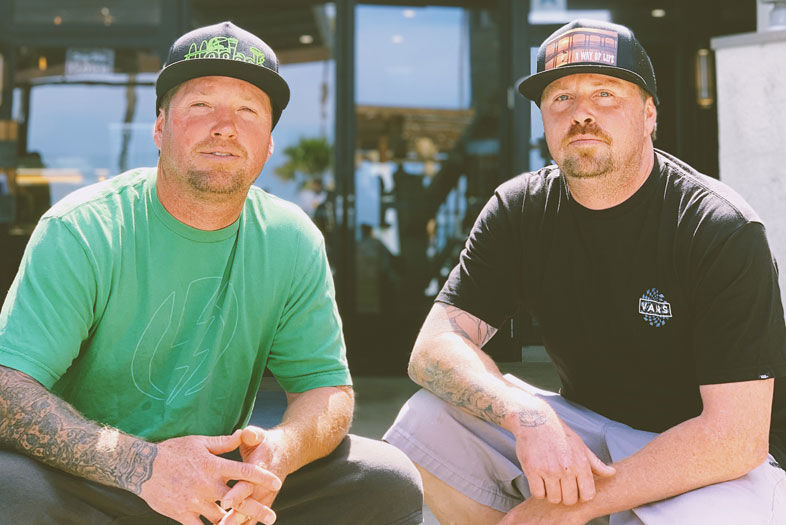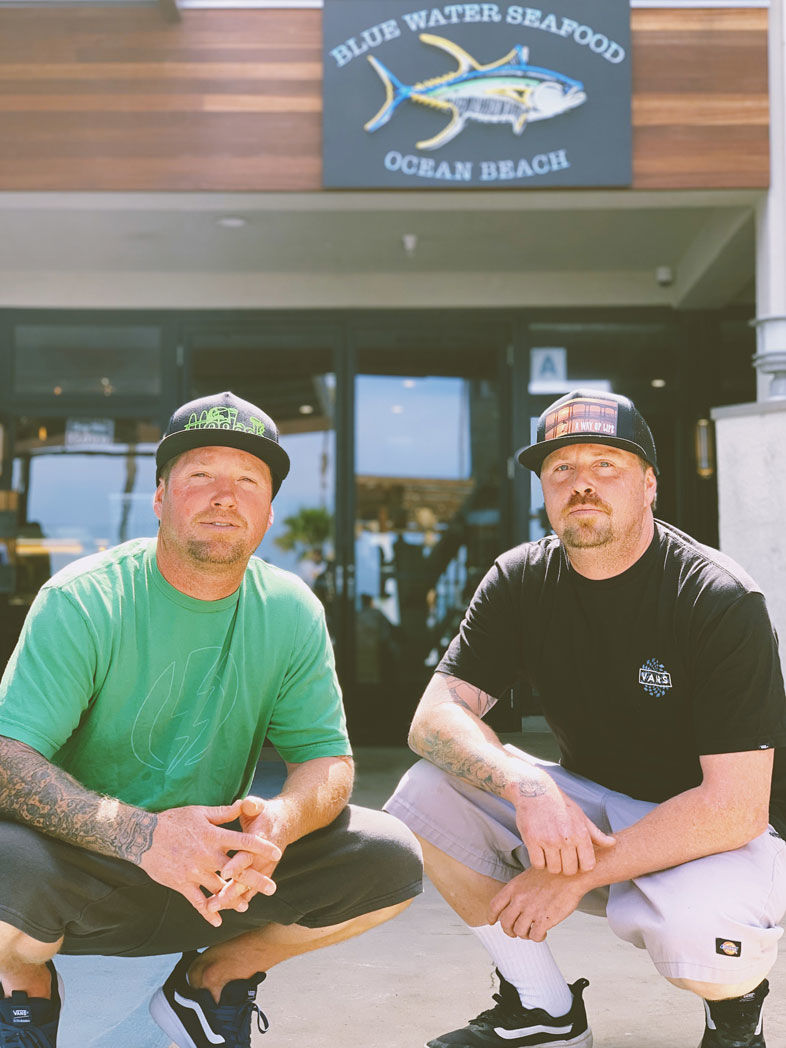
Blue Water Seafood brothers
Send It Back
The workers know who’s calling before they answer the phone.
“If the phone rings at 6:45 a.m. on the production floor, it’s a problem with Blue Water’s order,” explains John Principato of Chesapeake Fishing Company. “Maybe the wahoo has a little notch near the tail end, or another little problem. All they want is top quality, and they are super particular about the fish they buy. We have a meeting every single week about Blue Water.”
But, he adds, “that’s why they’re a gem—there are very few businesses like them.”
If this sounds obsessive or annoying, well, that’s what it takes to do business with Blue Water Seafood Market & Grill. And business is finally good. Over the last 14 years, brothers Judd and Matt Braun banked on a zealot’s commitment to quality seafood and slogged their way to the top. They depleted their family’s life savings to open their first janky spot in Mission Hills, and proceeded to go nearly bankrupt multiple times. Through the death of their father and the birth of their kids, through all the frauds claiming to sell fresh fish and undercutting them on price by using frozen—Blue Water earned their reputation as one of the best seafood markets in the country.
“Straight hell on wheels,” Judd answers when I ask about how vendors know them. “To be fair, we were forced into this business model. We were broke. No one would give us ‘terms,’ where they let you have fish and pay later. We had to pay cash or check every single day. Some days I’d scrape together just enough money for the day, and sleep on the doorsteps of the fish company, waiting for them to show up.”
Judd and his brother Matt were raised in Ocean Beach, fishing and surfing with their dad. They went to Point Loma high with the sons and daughters of the city’s famed Portuguese fishermen. They worked on boats as commercial divers, fishing from Greece to the Red Sea. Then Judd took a job at El Pescador, another top seafood spot run by fishermen. They knew, intimately, what A-plus fish looked like.
“So if it wasn’t absolutely perfect, we’d wrap it up and send it back,” he says. “I already paid for it, so give me the right shit.”
Now Blue Water works with various fishermen and seafood distributors. At the cutting station of each vendor is a sign with Blue Water’s strict specs. No one wants to get that 6:45 a.m. call from the Braun brothers.
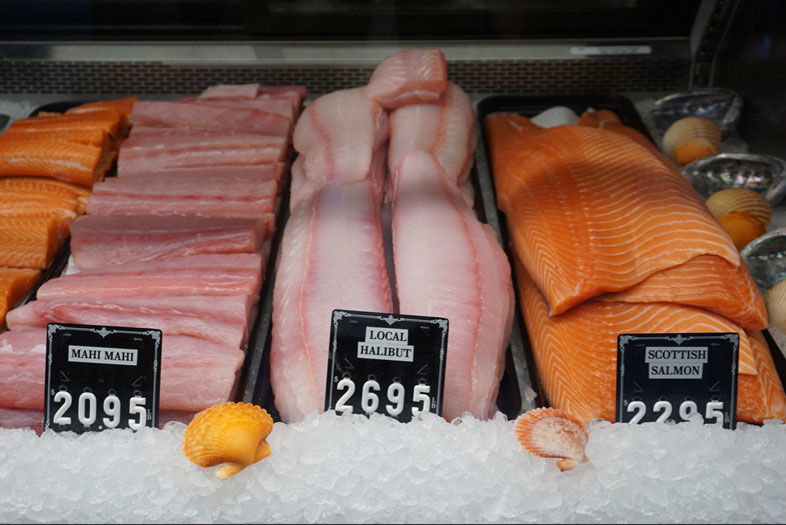
Blue water seafood fresh fish
The Fieri Effect
“We didn’t want to do Diners, Drive-Ins, and Dives,” Judd explains of when, in 2010, they got the call from producers of Food Network’s biggest show, starring Guy Fieri (disclosure: I work with Fieri on “Guy’s Grocery Games”). “We had no idea how good it would be for our business, and Guy was just such a cool fu*#ing guy. I was so scared when he came in. He told me, ‘Go drink two beers right now or you’re going to come off super scared.’”
Fieri’s flagship show has been known to drastically alter the course of mom and pop restaurants. DDD fans make maps of his stops, travel the country to try them out. The “Fieri Effect” is evinced by the lines outside the San Diego places he’s featured on the show—Hodad’s, Lucha Libre, OB Noodle House. Hodad’s legendary owner Mike “Bossman” Hardin had a tattoo of Fieri on his leg. Before he passed, I asked him why. “He changed my life,” Hardin told me. “He quadrupled my business overnight.”
Judd says the show tripled their business. “Changed our lives—that was the tipping point,” he says.
Producers on DDD warn restaurants. Tell them to be ready. The spike in business is real, and so is the pressure to deliver. Customers often complain about Fieri “blowing up my favorite spot.” The Brauns felt it.
“It was almost too much, honestly,” recalls Braun. “You have gnarly expectations when people are waiting in line for 45 minutes. It’s fearful. Nobody knows how to go from doing $6,000 on a big day to doing $13,000.”
Especially for a local joint that depends on treating its regulars like regulars.
“You love the people who built you up,” Matt explains. “We’re their little honey hole they go to. Which is what we always wanted to be. Now they have to wait in line. How do we balance that?”
Blue Water was started in 2006 on money Judd and his dad had from selling a family home. They had $300,000 and an idea—a true, high-quality seafood joint that would make fishermen proud. No frozen seafood, no corners cut. Judd found their original Mission Hills location through a classified ad in The Reader.
“We had no idea about anything,” explains Judd, who was 27 at the time. “It was me, my dad, and a construction truck. It was a beat, beat spot. Nothing really worked. We had no idea we’d have to bring everything up to code.”
By the time they opened, they had $700 left to their name.
So when their episode of Diners, Drive-Ins, and Dives aired, it was the first time they could stop scraping money to buy the day’s fish, stop sleeping on fishmongers’ doorsteps, and—most importantly, they say—take care of their people.
“We had been getting notoriety and praise, but we weren’t getting anywhere monetarily,” says Matt. “I had a brand new kid and no electricity in our house. I was like ‘Well, guess we’ll never make any money doing this but at least we’ll have time with the family.’ What Guy did was help us pay our people. We could step off the floor and take a look at things instead of being knee-deep in it.”
Their manager is a partner. The guy who runs the seafood case is a partner. They invested in people.
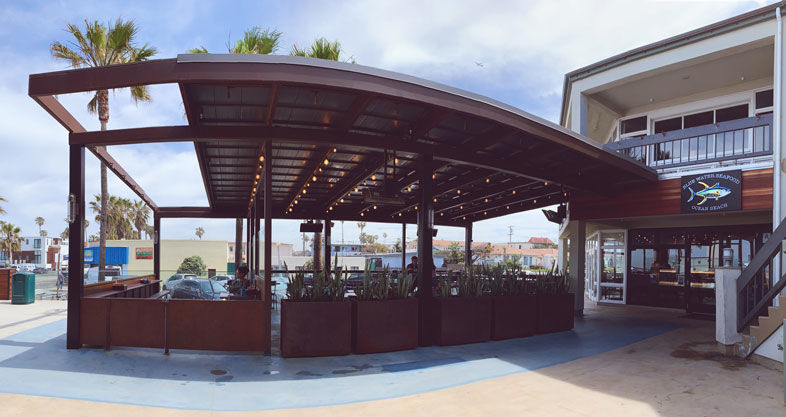
Blue Water Seafood exterior
Prove It
Seafood fraud is rampant. This March, leading industry nonprofit Oceana announced the results of its newest study. After taking 400 samples from 250 locations in 24 states, they found that over 20 percent of seafood was mislabeled (one in every five fish). One out of every three establishments sold mislabeled fish.
I’ve heard it over and over: Operators who do it honestly—pay up for the good stuff—get shafted by the frauds. Shady owners buy cheaper, frozen seafood and pass it off as fresh, top-quality fish. Able to sell it for less, they undercut operators playing by the rules. The government simply doesn’t have the bandwidth to police the practice, and customers don’t know the difference until they taste them side by side.
I ask if they’ve seen fraud, and if it affected them. They shake their heads as if to say you have no idea.
“There are places that say they’re serving fresh fish, and I see the owners every week at Restaurant Depot when I’m buying mayonnaise—and they have stacks and stacks of frozen mahi,” explains Matt. “People look at places like that and say, ‘How come their mahi is so much cheaper than Blue Water?’ It sucks, because I know what it’s like to have no money and put bomb fish out every day, pay my people, and not take a paycheck for myself.”
So how can a customer know who’s honest and who’s not?
“Ask to see their receipts,” says Matt.
I ask to see Blue Water’s receipts for the day. Matt brings it out, lays it on the table, and the proof is there. All top-of-the-line fish, from respectable sources.
“We’re not restaurateurs, dude,” says Judd. “We’re you. We did it how we would want to. We’ve made a ton of mistakes and almost gone broke a hundred times, but I think the reason we’ve been able to be successful is we did it honest.”
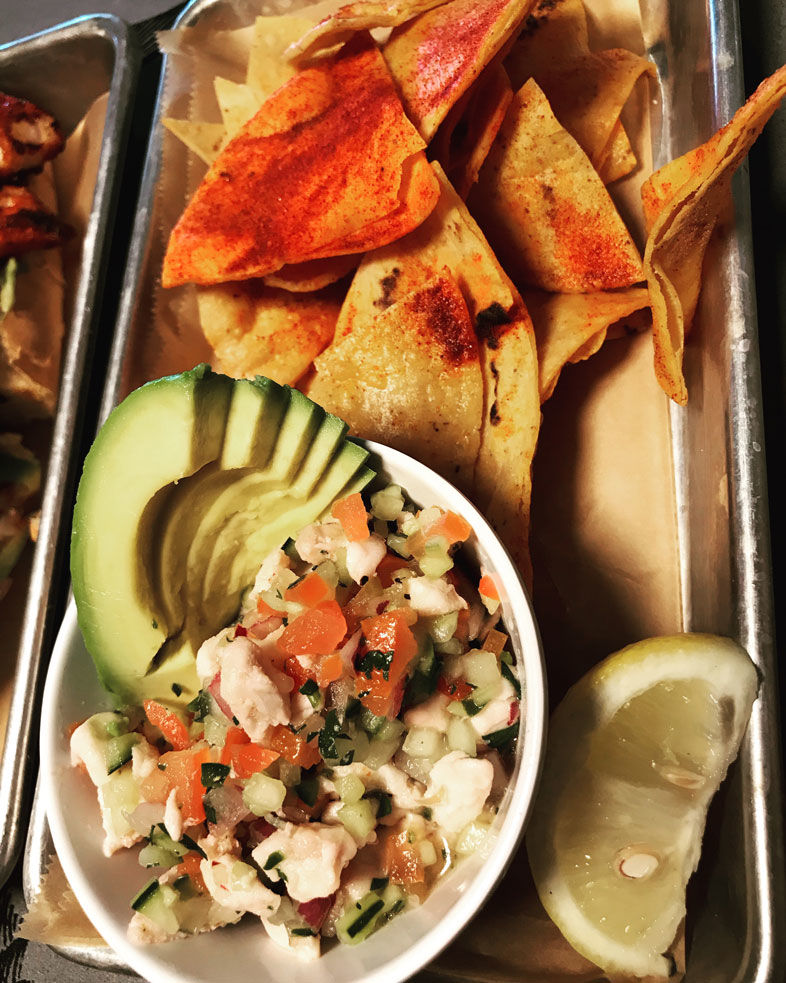
How Blue Water Seafood built one of the country’s best fish markets
Coming Home
The Braun boys are from Ocean Beach. Never left. Known as “The People’s Republic,” the hyper-independent beach community is undergoing some drastic changes. It’s still rough around the edges, which keeps the full onslaught of gentrification at bay. But rents are going up, and, despite a loud opposition campaign, a Target just went in on the main drag, Newport Avenue.
“It wasn’t cool to be from here,” says Judd. “We were the wrong side of the tracks kids. It was a great town, but a lot wilder. Bikers ran this town until the ’90s when RICO came and everyone got rolled up.”
Their new location at the corner of Abbott and Santa Monica—directly in front of the beach and main lifeguard tower—is the return they always wanted, just blocks from their childhood home. As kids, they were regulars at this very spot (then Spucky’s Burgers).
“I’ve lived here for 42 years, within the same three blocks,” says Judd. “It was wild, but it was peaceful. The moms knew the dads knew the uncles knew the cousins.
“We had a group of kids and we hung out on those rocks right there,” he continues, pointing to the jetty. “We’d walk from our house with 75 cents in our pocket. We’d surf, and then come spend 50 cents on a Spucky’s burger and have a quarter to call for a ride home if we were too tired. It was the absolute best.”
I ask what changes they’ve seen in O.B.
“The main difference is there was a lot more freedom in the ’70s and ’80s,” says Matt. “We were walking to the beach with our surfboards at 10 years old. You had to be tough growing up here. Not a gnarly fu*#ing animal, but you had to know how to fight. The trustafarians who camp out at the beach now and smoke weed—we didn’t let that happen. You policed your own neighborhood. When you turned 13 here, you knew that was your job. You’d pick up a piece of trash every time you got out of the water. If someone littered, it was your job to say, ‘Pick that up and put it in the trash, dude.’ If someone was smoking weed near kids, you’d tell them, ‘Go do that somewhere else.’”
Blue Water O.B. is very much a Braun family production. Their mom runs the books. Their uncle, in his seventies, shows up to work at 6:45 every morning. The Braun boys pick up cigarette butts in the alley, then wash up, roll up their sleeves, and tend to the fish. It’s the kind of place that would’ve made their dad proud.
“I wish he would’ve lived to see it,” says Judd. “He worked his ass off. He got to see us turn the corner a bit, but didn’t get to see it really become successful. He was all about the family—he’d drive two hours to work in Orange County, two hours back, then load us into the truck with the dog and our surfboards and we’d come here to the beach.”
“One thing that’s always left out of these stories,” says Matt, pointing to one of his managers, “is those guys. We’d be nothing without them. They’ve been in the slop with us for years.”
Blue Water OB is well-designed, with custom ironwork on the covered patio, and tables engraved with various species of fish. But on the walls are simple 4×6 photos of locals, most of them with fish or by water of some sort.
“Every one of those photos is a local person we know,” says Matt. “We didn’t build this place for tourists, we built it for locals. Everyone who’s come through the doors so far are uncles, grandmas, kids we grew up with.”
“It’s what we always wanted,” adds Judd. “Just a quality fish market in our hometown.”
